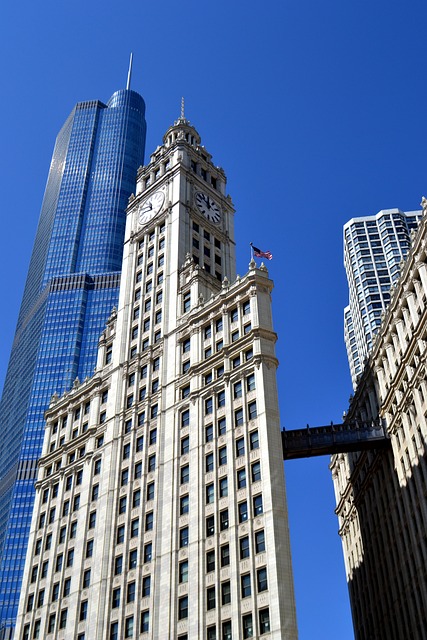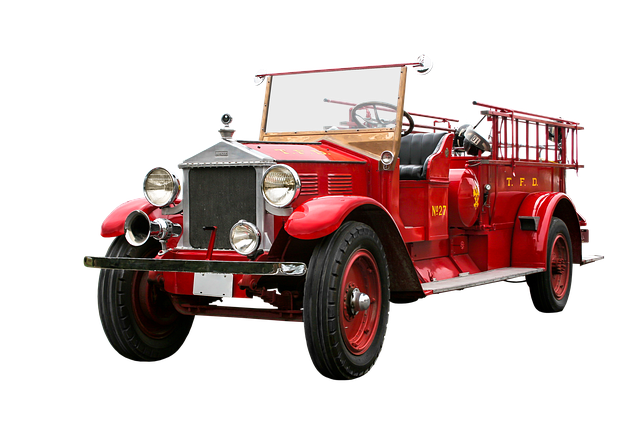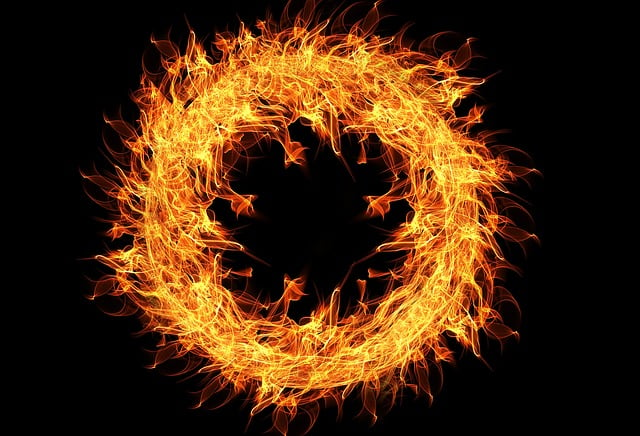Chicago's real estate market offers diverse investment opportunities, including properties damaged by fire. While these present challenges like repairs and legal disclosures, they also offer potential benefits due to undervalued assets and high demand. To successfully navigate this, investors should understand seasonal fluctuations, neighborhood dynamics, and current trends. By carefully assessing damage, adhering to building codes, and leveraging local resources, investors can rehabilitate properties and capitalize on Chicago's robust market. Key strategies include identifying undervalued properties, thorough inspections, strategic renovations focusing on high-return areas, and accurate disclosures for a smooth sale. Areas like Lincoln Park, Wicker Park, Bucktown, Andersonville, Chinatown, and Little Italy offer promising investment opportunities despite fire damage.
“Uncover Chicago’s real estate landscape through the eyes of seasoned investors. This comprehensive guide navigates the market dynamics and unique opportunities within the Windy City. From understanding the local scene to mastering property flipping, we explore strategies for successful investment.
A significant focus is on addressing the question: can you sell a house with fire damage in Chicago? We delve into the challenges and legal intricacies, offering insights for investors brave enough to venture into these transformative projects.”
- Understanding Chicago's Real Estate Market: A Beginner's Guide for Investors
- The Challenges and Rewards of Investing in Damaged Properties: Fire Damage Scenarios in Chicago
- Navigating Legalities: Selling a House with Fire Damage in the Windy City
- Strategies for Successful Property Flipping: Tips from Local Chicago Investors
- Top Real Estate Neighborhoods in Chicago: Where to Buy, Sell, and Invest Wisely
Understanding Chicago's Real Estate Market: A Beginner's Guide for Investors
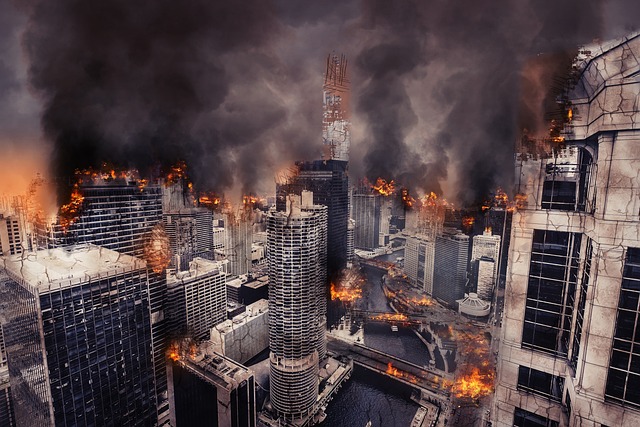
Chicago’s real estate market is a dynamic and diverse landscape, offering both seasoned investors and newcomers a plethora of opportunities. Understanding this market requires an understanding of its unique dynamics, such as seasonal fluctuations, neighborhood variations, and current trends. For beginners, it’s essential to note that the city’s reputation for strong property values and steady growth makes it an attractive investment destination.
One common concern for potential investors is navigating properties with issues like fire damage. In Chicago, selling a house that has sustained fire damage is possible but requires careful consideration. Repairs and renovations can significantly impact the cost of sale, so investors should assess market demand for such properties, consult with real estate professionals, and understand the legal aspects related to disclosure and repairs. With proper knowledge and strategy, these challenges can be turned into opportunities, especially in a market as robust as Chicago’s.
The Challenges and Rewards of Investing in Damaged Properties: Fire Damage Scenarios in Chicago

Investing in damaged properties, particularly those affected by fires, presents a unique set of challenges and opportunities for real estate investors in Chicago. While fire damage can significantly devalue a property, it also offers a chance to acquire a piece of real estate at a discounted price, especially in competitive markets like Chicago. Many homeowners or landlords might be eager to sell quickly due to the stress and financial burden of repairs, providing investors with an opportunity to step in.
In Chicago, where property values can vary widely across neighborhoods, a house suffering from fire damage could be seen as an undervalued asset. However, navigating the process of purchasing and renovating such properties requires careful consideration. Investors must assess the extent of the damage, obtain accurate repair estimates, and understand local building codes and zoning regulations to ensure the property can be safely restored and sold or rented at a profit. The ability to identify potential for transformation and successfully rehabilitate these damaged properties is what makes fire-damaged real estate investing both challenging and rewarding in Chicago’s dynamic market.
Navigating Legalities: Selling a House with Fire Damage in the Windy City
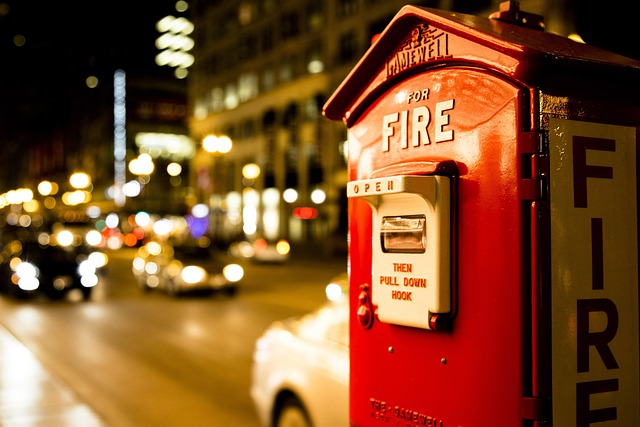
Navigating the legalities of selling a house with fire damage in Chicago involves several key steps. First, assess the extent of the damage and consult with a professional to determine the feasibility of repairs. In many cases, if the damage is significant, it might be more practical to consider a partial or total demolition, which requires adhering to specific city codes and permits.
Once repairs or demolition plans are in place, engage with experienced real estate professionals who understand Chicago’s unique market dynamics and legal requirements. They can guide you through the process of obtaining necessary permits and ensuring all disclosures are made accurately. This transparency is crucial for a smooth sale and protecting both the seller and buyer from potential legal complications related to fire-damaged properties in the Windy City.
Strategies for Successful Property Flipping: Tips from Local Chicago Investors

In the competitive Chicago real estate market, successful property flipping requires a keen eye for potential and strategic planning. Local investors share their insights on navigating the challenges of fixing and flipping homes, even in cases where there’s evidence of fire damage. One key strategy is identifying undervalued properties with repairable fire damage, as these can offer significant profit margins after renovations. It’s important to remember that Chicago’s strict building codes apply to all repairs, so thorough inspections are crucial before initiating any work.
Additionally, these investors emphasize the value of a comprehensive renovation plan and budget. They suggest focusing on high-return areas like kitchen and bathroom remodels while also ensuring structural integrity. Many successful flippers in Chicago leverage local resources and contractors for cost-effective solutions to fire damage restoration. This not only enhances the property’s appeal but also aligns with market trends favoring modern, well-restored homes.
Top Real Estate Neighborhoods in Chicago: Where to Buy, Sell, and Invest Wisely
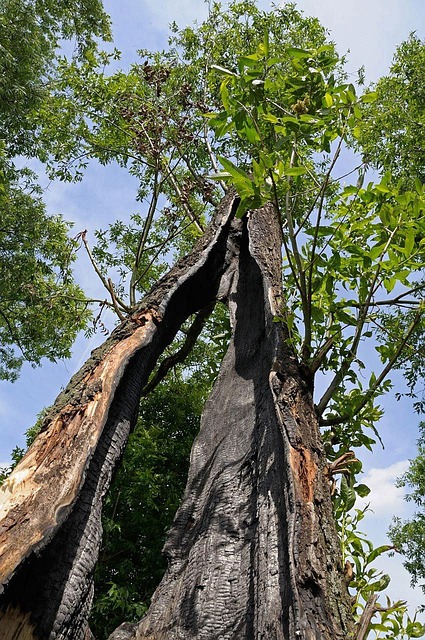
Chicago, known for its diverse neighborhoods and thriving real estate market, offers a plethora of options for investors. When considering where to buy, sell, or invest in properties, certain areas stand out as top choices due to their established communities, robust economies, and high property values. These include Lincoln Park, Wicker Park, Bucktown, and Andersonville—each with its unique character and appeal.
For those wondering about buying or selling a house with fire damage Chicago, many investors see potential in these properties. While initial repair costs can be a concern, the right renovation strategies and knowledge of local regulations can turn these damaged homes into valuable assets. Areas like Chinatown and Little Italy, for instance, are experiencing a surge in popularity, making investments in these neighborhoods both lucrative and timely.
Chicago’s real estate market presents unique opportunities and challenges for investors. By understanding the local dynamics, navigating legalities, and adopting successful strategies, such as those shared by local experts, it is feasible to thrive in this vibrant environment. When considering properties with fire damage, recognizing both the challenges and rewards can lead to lucrative investments. With the right approach, you can navigate the process of selling a house that has fire damage in Chicago effectively, ensuring a positive outcome for your real estate endeavors.



